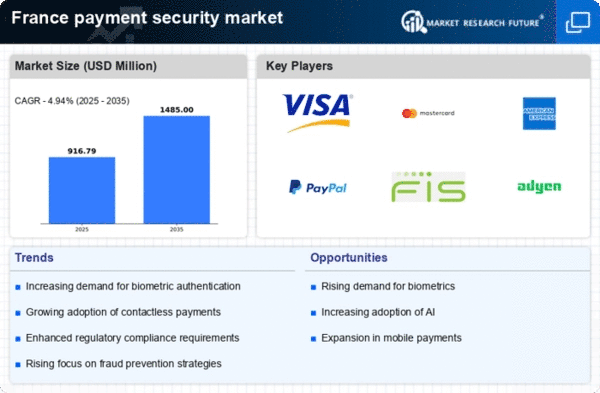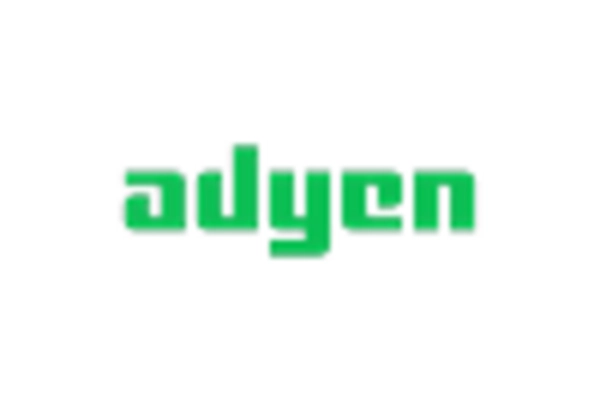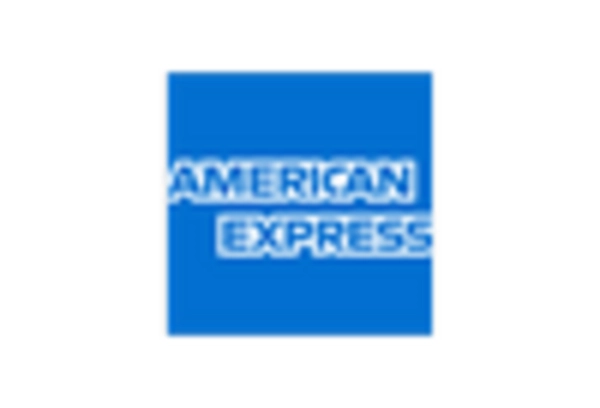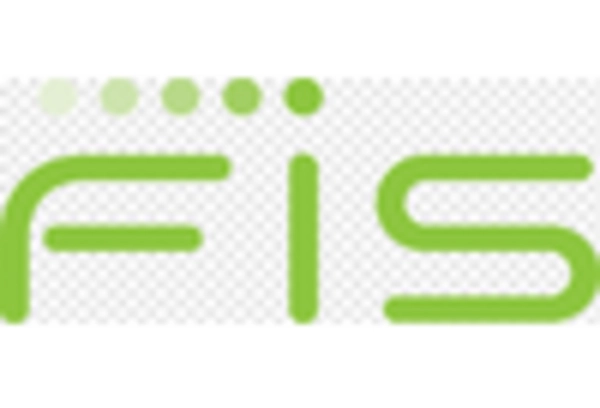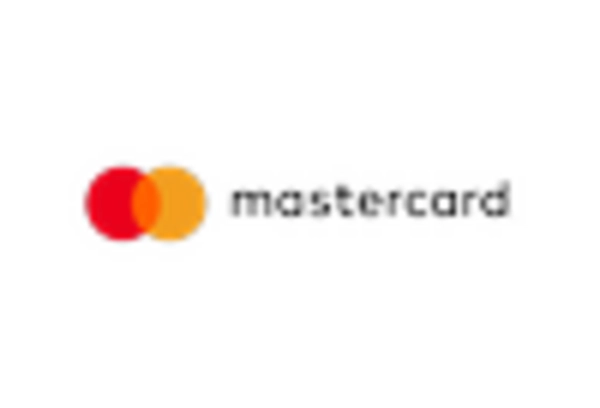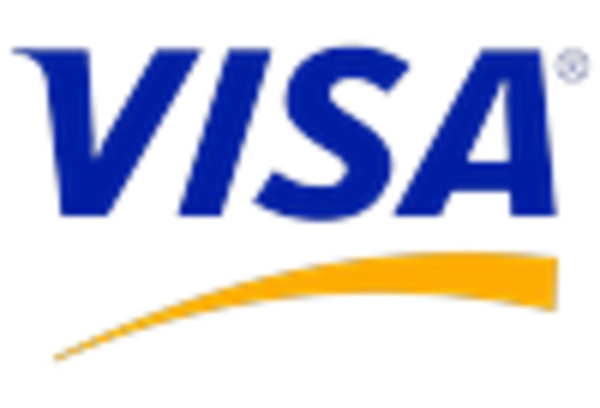Rising Cybersecurity Threats
The payment security market in France is increasingly driven by the rising threats posed by cybercriminals. With the number of data breaches and cyberattacks escalating, businesses are compelled to invest in robust security measures. In 2025, it is estimated that cybercrime could cost the French economy over €5 billion annually. This alarming trend has prompted organizations to prioritize payment security, leading to a surge in demand for advanced security solutions. As a result, The payment security market is witnessing significant growth, with a projected CAGR of 12% over the next five years. Companies are now focusing on implementing multi-layered security protocols to safeguard sensitive payment information. This approach enhances consumer trust and ensures compliance with stringent regulations.
Increased E-commerce Transactions
The rapid growth of e-commerce in France is a pivotal driver for the payment security market. As online shopping becomes more prevalent, the volume of digital transactions is expected to reach €100 billion by the end of 2025. This surge in e-commerce activity necessitates enhanced security measures to protect consumer data and prevent fraud. Retailers are increasingly adopting secure payment gateways and encryption technologies to mitigate risks associated with online transactions. Consequently, the payment security market is experiencing a robust expansion, with businesses investing heavily in security solutions to maintain customer confidence and comply with regulatory requirements. The shift towards digital payments is likely to continue, further propelling the demand for innovative security technologies.
Consumer Awareness and Demand for Security
Consumer awareness regarding payment security is significantly influencing the payment security market in France. As individuals become more informed about the risks associated with online transactions, they are demanding higher levels of security from businesses. Surveys indicate that 70% of French consumers consider security features as a critical factor when choosing payment methods. This heightened awareness is prompting companies to enhance their security offerings, leading to increased investments in advanced technologies such as tokenization and biometric authentication. The payment security market is thus evolving to meet consumer expectations, with businesses striving to provide secure and seamless payment experiences. This trend is likely to continue, as consumer preferences increasingly dictate the direction of security innovations.
Technological Advancements in Payment Security
Technological advancements are playing a crucial role in shaping the payment security market in France. Innovations such as blockchain technology, artificial intelligence, and machine learning are being integrated into payment systems to enhance security and reduce fraud. In 2025, it is projected that the adoption of AI-driven security solutions could reduce fraud rates by up to 30%. As businesses seek to leverage these technologies, the payment security market is witnessing a transformation, with a growing emphasis on real-time fraud detection and prevention. This technological evolution is likely to drive further investments in security infrastructure, as organizations aim to stay ahead of cyber threats and provide secure payment experiences for their customers.
Regulatory Landscape and Compliance Requirements
The regulatory landscape in France is a significant driver of the payment security market. With stringent regulations such as the General Data Protection Regulation (GDPR) and the Payment Services Directive 2 (PSD2), businesses are required to implement robust security measures to protect consumer data. Non-compliance can result in hefty fines, which can reach up to €20 million or 4% of annual global turnover, whichever is higher. As a result, organizations are investing in compliance-driven security solutions to avoid penalties and maintain their reputation. The payment security market is thus experiencing growth as companies seek to align their security practices with regulatory requirements. This trend is expected to persist, as regulatory bodies continue to evolve their frameworks to address emerging threats.


